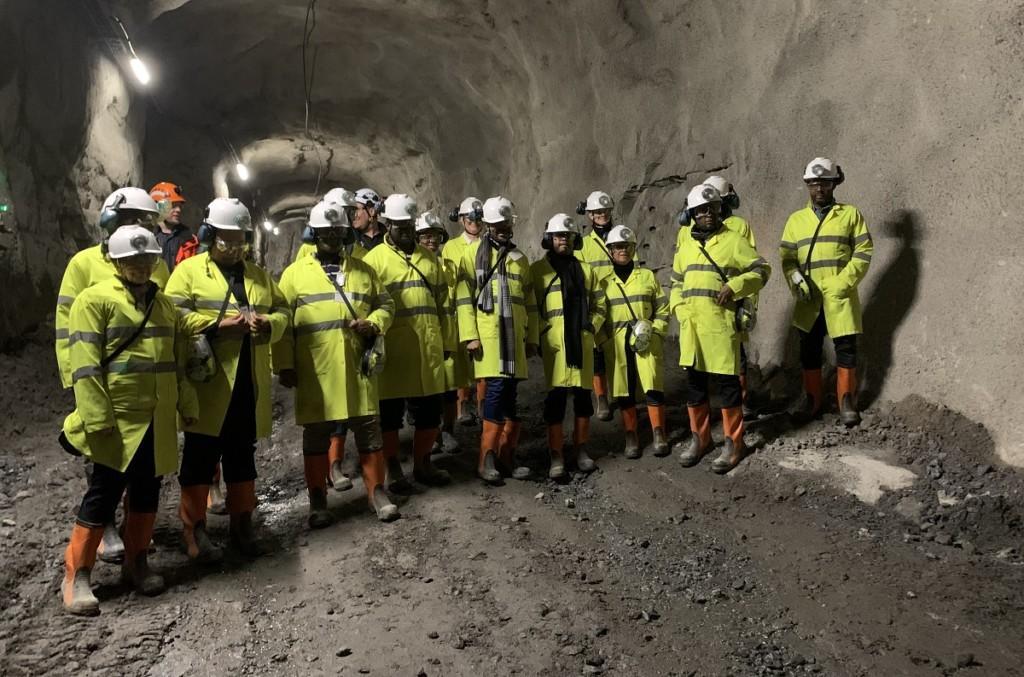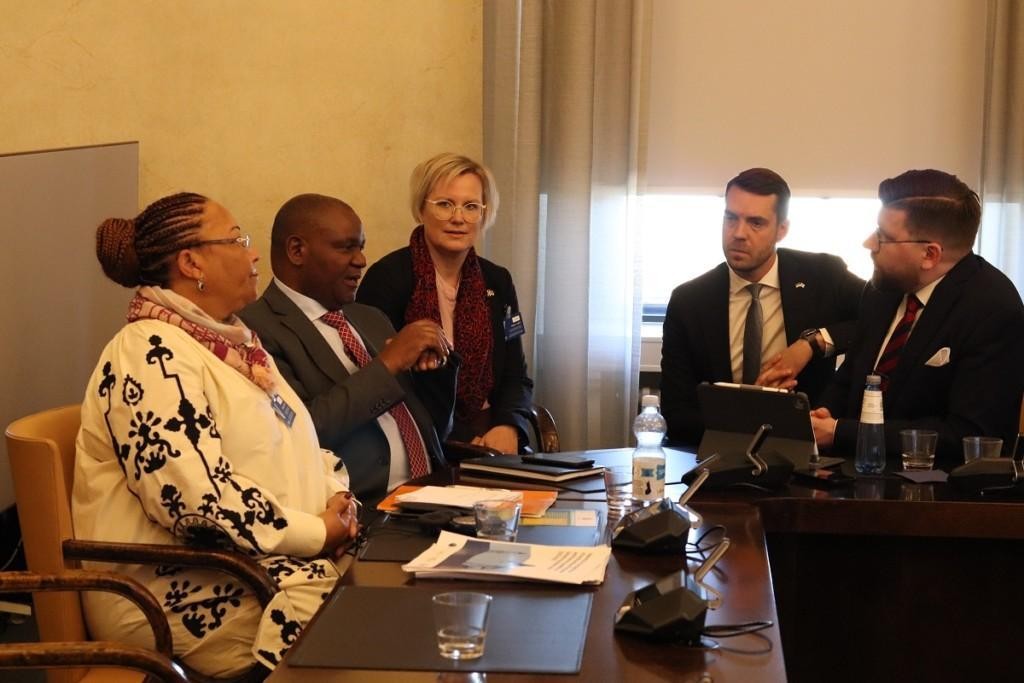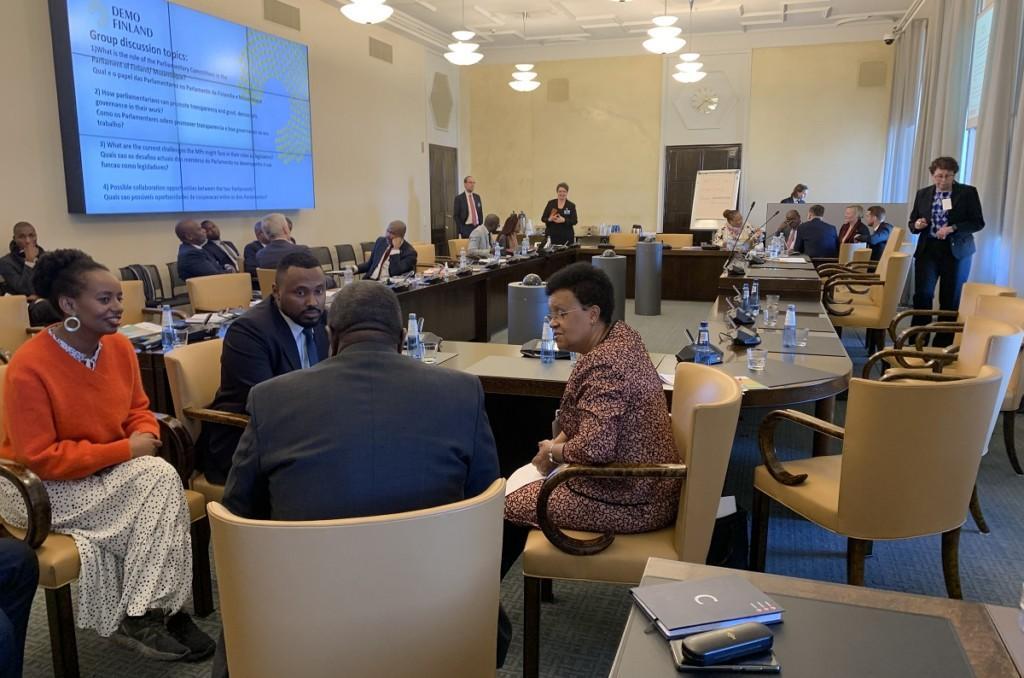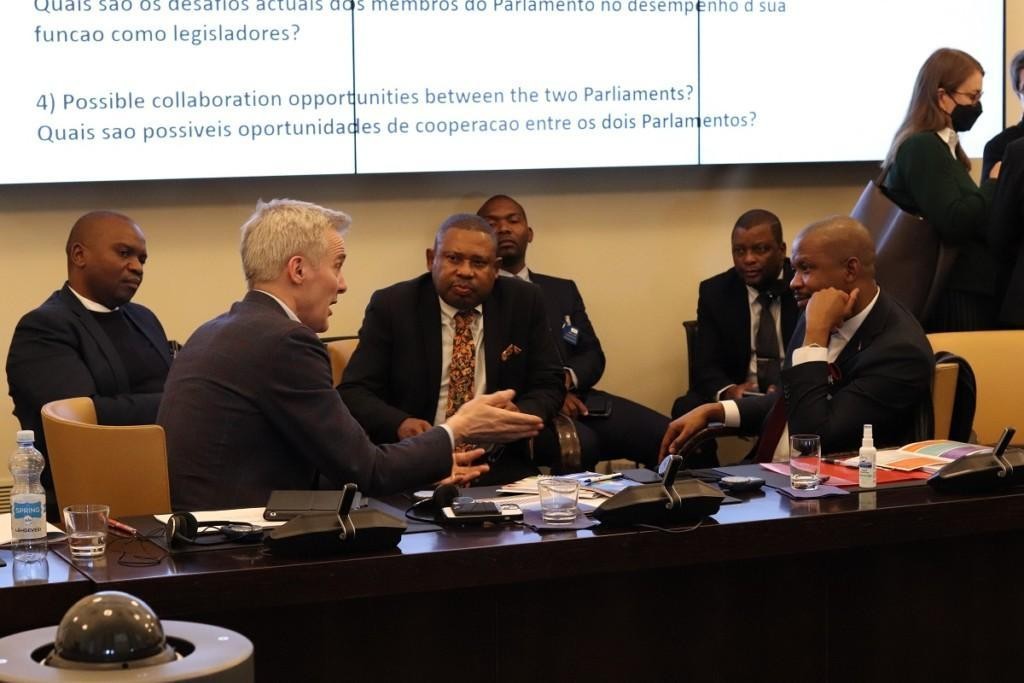In their visit to Finland, Mozambican MPs were particularly interested in the experiences of Finnish MPs in legislative work and the use of new technologies in mining.
Together with its partners Instituto para Democracia Multipartidária (IMD) and the Netherlands Institute for Multiparty Democracy (NIMD), Demo Finland has supported the democratic governance of Mozambique’s natural resources and in particular the oversight role of the Parliament in the extractive industry since 2017. As part of this programme, a group of Mozambican MPs visited Finland in May and got acquainted with legislative work, open governance and the extractive industry. All three Mozambican parliamentary parties were represented in the delegation.
The visit programme consisted of meetings with Finnish MPs as well as presentations by companies, experts and officials from different administrative sectors. The delegation met with officials from the Ministry of Economic Affairs and Employment and the Ministry of Finance as well as the Network for Sustainable Mining. They also visited the Ministry for Foreign Affairs and discussed co-operation between Finland and Mozambique with Under-Secretary of State Elina Kalkku. The programme also included a visit to Sandvik Mining and Construction’s test mine, where the company is testing new equipment and developing new technologies for mining industry.

“The visit at Sandvik was very interesting for us because we are a country that is struggling to explore the natural resources that we have, and one of the challenges that we have now is to have technologies that do not harm the environment. Digital technology that is used already is an opportunity for the mineral resources industry in Mozambique”, says MP Telmina Pereira (Frelimo).
MPs Viana da Silva Magalhães (Renamo) and Lutero Simango (MDM) were also interested in learning about innovations in mining. However, Magalhães was also thinking about the possible negative effects of the new technologies: “Growth in productivity and safety are good things, of course. But the question is that these innovations can reduce the need for labour force and many people may get unemployed”, says Magalhães.
Discussions with colleagues
In their visit to the Finnish Parliament, the delegation got to hear about the renewal process of the Finnish mining law and about sustainable mining, as well as to discuss with Finnish MPs. International peer learning has been an integral part of the project from the beginning and has been found to be useful on both sides.
Finland’s decision to apply for NATO membership was discussed frequently in the dialogue between MPs and during other parts of the visit, because the historic vote on the application took place in the Parliament in the same week as the delegation’s visit. The Mozambican guests were interested in both the background to Finland’s decision and its possible effects. In the Parliament, MP and Demo Finland’s Chair Jouni Ovaska (Centre Party) also emphasised the importance of co-operation across political party lines, and MPs Inka Hopsu (Greens) and Hussein al-Taee (Social Democrats) shared their experiences and views on the reform of the Mining Act, which was appreciated by the guests: “Hearing the real experience of having this review of the mining law was very interesting for me”, says Telmina Pereira.

In addition to Jouni Ovaska, MPs Anders Adlercreutz (Swedish People’s Party), Bella Forsgrén (Greens), Suldaan Said Ahmed (Left Alliance) and Sebastian Tynkkynen (Finns Party) took part in small group discussions with Mozambican MPs. Plenty of topics were discussed when the politicians shared experiences on enacting legislation and the role of Parliament in Finland and Mozambique. MPs Veronika Honkasalo (Left Alliance), Kimmo Kiljunen (Social Democrats), Antero Laukkanen (Christian Democrats) and Jenni Pitko (Greens) also attended meetings with the Mozambican MPs. At the welcome dinner, the delegation also had the opportunity to meet Demo Finland’s 2nd Vice-chair, MP Saara-Sofia Sirén (National Coalition Party).
Finnish MPs had questions for their colleagues about, among other things, co-operation between the country’s two largest parties and Mozambique’s relationship with Portugal. Mozambique’s first multi-party elections were held in 1994, and the largest party, Frelimo, currently holds 184 seats in the country’s 250-seat Parliament. Representatives of opposition parties, Viana da Silva Magalhães and Lutero Simango emphasised that, despite their different ideologies, the parties in Mozambique are working towards a common goal, which is the well-being of Mozambicans.

Simango was also impressed by the participation and diversity in Finnish politics: “One of the experiences I will take home with me is different actors coming together, always looking for consensus to build a society in which everyone is a part of it.”
Co-operation between political parties also plays a significant role in Demo Finland’s work. “There is something to retain in Demo Finland’s objectives”, says Magalhães. “Despite the different opinions, all parties work together. We can learn from this experience. Looking at our history, there is a need for all political forces to join their efforts in order to work together for the benefit of all.”
Results of the co-operation
The Mozambican delegation was interested in the mining tax planned for Finland’s upcoming Mining Act as well as the tax administration in general. The natural resources found in Mozambique are expected to bring significant revenue to the state, and ensuring their fair distribution and democratic governance is essential to prevent conflicts and misuse of the revenue.
The project that Demo Finland supports has conducted training for Parliamentary Committees and Provincial Assemblies on the impacts of the extractive industry and the role of parliamentary oversight, and supported dialogue between local communities and politicians. The expertise of Committee members on the impact of the extractive industry has increased, and the Committees are holding more consultations on the extractive industry than before. Provincial Assemblies are also now actively organising stakeholder hearings on the regional level, which has improved the capacity to monitor the implementation of legislation.
Finland’s examples and experiences of the mining industry and legislation have been valuable for the Mozambican delegation: “It’s difficult to pick just one interesting thing, but the whole trip was very beneficial for all of us”, Telmina Pereira summarises.
Mozambican media was also interested in the delegation’s visit and different parts of the visit were covered both in newspapers and in television.
Demo Finland’s work in Mozambique is funded by the Ministry for Foreign Affairs of Finland and the project will run until the end of 2023.

